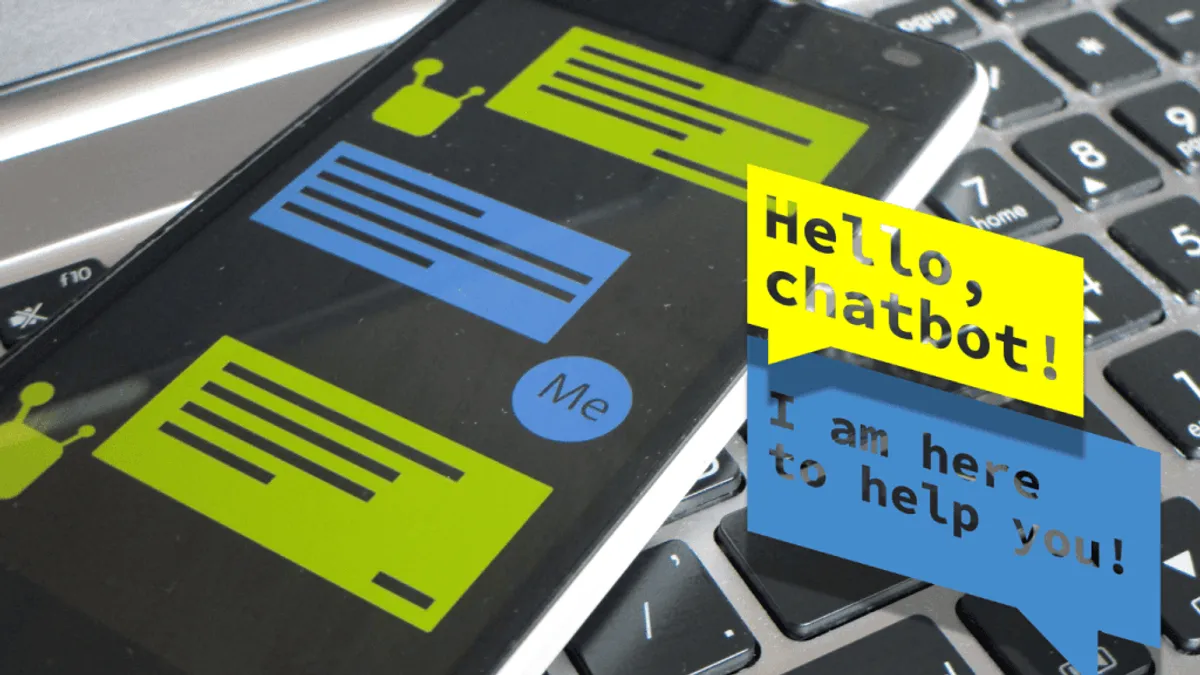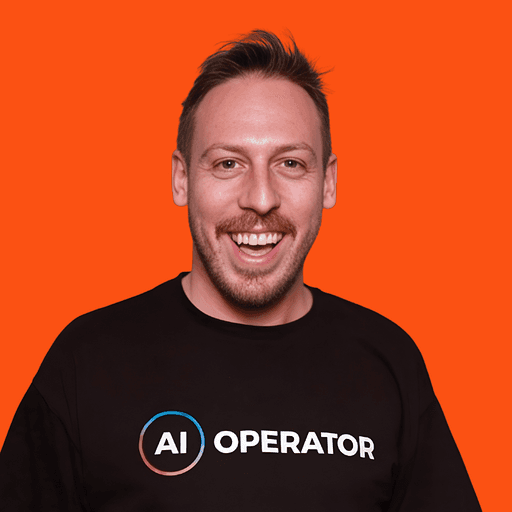Explore 8 examples of AI in marketing: personalization, ad optimization, predictive analytics, chatbots, and more. See how top brands boost ROI with AI.
Marketing today is vastly different from what it was a few years ago. Today, marketing campaigns are tailored to each individual, ad spending is optimized, and customer experiences are personalized to a tee. These are just some examples of artificial intelligence in marketingand how it has changed the game.
This is not a futuristic dream anymore—it’s the reality of marketing today, with artificial intelligence now an essential component of modern marketing.
AI marketing continues to revolutionize the industry by enabling personalized messages, optimizing ad campaigns, and enhancing customer experiences.
In this article, we’ll explore eight powerful examples of artificial intelligence in marketing that demonstrate the immense potential that this technology holds for businesses worldwide.
1. Personalized marketing messages with AI

Personalized marketing with AI goes beyond just addressing your customers by their first names. It’s about understanding their preferences, and behaviors, and predicting what they might want even before they realize it. AI marketing algorithms analyze vast amounts of consumer data first, from online behavior to purchase history, to create a detailed customer profile. This information is then leveraged to tailor marketing messages that resonate with individual tastes and preferences.
Not only does AI enable the personalization of marketing messages, but it also, ai marketing helps marketers:
- Segment customers based on demographics, location, and interests, allowing for more targeted campaigns
- Achieve better engagement, customer satisfaction, and ultimately, increased sales
- Build deeper connections with their customers while enhancing results
There are 92% of businesses that are already using AI for personalization, so it’s pretty clear that marketing teams are already recognizing this benefit.
Example: Whole Foods uses AI to analyze shopping activity and identify patterns— hyper-personalized marketing campaigns. Shoppers can engage with the Whole Foods recipe generator via Facebook Messenger and they can receive recipes depending on their responses.
2. Machine learning for ad campaign optimization

Machine learning algorithms transform ad campaigns from hit-or-miss to precision-engineered success stories.
As a subset of artificial intelligence, machine learning can now analyze data from vast datasets at lightning speed. When applied to marketing and advertising, it becomes easier to make real-time adjustments to ensure improved targeting and return on investment (ROI). The speed and accuracy of data analysis through AI technologies surpass that of humans, enabling marketers to optimize their campaigns effectively.
Examples: Automated ad targeting options like Facebook’s Lookalike Audiences and Google’s Smart Display campaigns help businesses reach users with similar interests to their existing customers, resulting in more efficient ad spend and more sales.
3. Predictive analytics in marketing

Predictive analytics is like the crystal ball of marketing strategies that transforms data into actionable insights. In fact, 84% of marketers are already using it.
Some of the things it can help you with:
- Anticipating customer churn: AI can analyze historical customer data to forecast future behavior. For businesses aiming to retain customers, like subscription businesses, predicting customer churn is a necessity. AI analyzes data like in-app behavior, usage patterns, and other relevant data that can help identify at-risk customers. That way, you can implement retention or engagement efforts ahead of time.
- Forecasting sales more accurately: AI can combine detailed sales data, historical numbers, and customer insights to improve the accuracy of forecasts. This then helps businesses plan better and allocate resources where they are most needed.
- Scoring leads in the background: Not all leads are created equal. AI assigns scores to leads based on their behavior, interactions, and characteristics. This enables marketers to focus their efforts on leads more likely to convert, optimizing resources and improving conversion rates.
- Forecasting demand and inventory: For businesses involved in selling products, predictive analytics can be a game-changer for inventory management. By analyzing historical sales data and external factors, it can forecast demand, helping businesses stock the right products at the right time to avoid both surplus and out-of-stock incidents.
Examples: Numerous AI tools now help businesses understand market trends, customer behavior, and potential revenue opportunities. Amazon is also using deep learning and predictive analytics to hyper-personalize product recommendations.
4. Natural Language Processing for content marketing

In the advanced realm of digital content, the ability to understand and communicate in human language is a plus. NLP is a subset of artificial intelligence that focuses on the interaction between computers and human language. Natural Language Processing (NLP) brings a touch of magic to content creation and marketing—turning text into a powerful tool for connection and engagement.
Here’s how NLP can help:
- Content generation and summarization: Imagine having an AI assistant that can not only generate coherent and contextually relevant content but also summarize lengthy articles or documents. NLP algorithms can sift through vast amounts of information, providing marketers with concise and engaging content options.
Examples: AI-powered tools like Surfer SEO and MarketMuse help marketers optimize their content for better visibility on search engines and increased organic traffic. Using NLP in their content creation and marketing enables businesses to craft engaging, relevant, and SEO-optimized content. This leads to better results and strengthens the relationship with the target audience.
5. AI-powered chatbots for enhanced customer experience

Providing personalized recommendations, real-time assistance and support, AI-powered chatbots are transforming customer experiences. Since the chatbot market is forecasted to reach $454.8 million in revenue by the year 2027, this only means that businesses must get ahead of their competition.
Customer service chatbots make 24/7 customer service a reality, addressing common queries, troubleshooting issues, and ensuring customers feel supported at any hour.
Example: Sephora has implemented chatbots to help customers with reservations for makeovers at stores. The bots also provide make-up tips, how-to videos, and even reviews. Sephora Color Match also allows users to hold their camera up to any image or even their face for an algorithm to identify shades and products from the Sephora line.
6. Computer vision in marketing

Computer vision enables businesses to analyze images and videos, improving targeting and engagement. In marketing, this means transforming images and videos into data that can inform strategies, enhance user experiences, and even enable new forms of engagement.
Here’s where computer vision can be used:
- Image recognition for branding: Analyze tons of visual content to identify logos, products, or even specific brand elements. This allows marketers to track brand visibility across social media, user-generated content, and various online platforms.
- Visual Search: Visual search powered by computer vision allows users to search for products online using images. This opens up new avenues for eCommerce, making the shopping experience more intuitive and personalized.
- Video analytics for engagement: Analyzing video content goes beyond views. Computer vision can track user engagement within videos, identifying which parts are most captivating or where viewers tend to drop off. This insight helps marketers optimize content for maximum impact.
Example: Computer vision can recognize a person’s face, enabling marketers to create image filters and other interactive features for their campaigns.
7. AI in social media marketing

With the power of artificial intelligence, businesses can navigate the social media landscape with precision and turn their own social media channels and strategies into impactful and strategic endeavors. Here are some examples of how AI social media can be leveraged by businesses:
- Social listening for brand sentiment: What are people saying about your brand across social platforms? AI-powered social listening tools can sift through the noise, analyzing sentiments and identifying trends. This not only helps in reputation management but also provides valuable insights for adjusting marketing strategies.
- Automated content scheduling: Posting at the right time is crucial in social media. AI can analyze when your audience is most active and automate the scheduling of posts for optimal visibility. This ensures your content reaches the right audience when they’re most likely to engage.
8. AI in email marketing

Artificial Intelligence adds a touch of magic to this art, transforming email marketing into a personalized, data-driven symphony of engagement. AI enhances email marketing by personalizing campaigns, refining subject lines, and increasing open and click-through rates.
- Personalized email campaigns: AI algorithms analyze user data to create personalized email campaigns tailored to individual preferences. From product recommendations to content suggestions, each email feels like a one-on-one conversation rather than a mass communication.
- Dynamic content optimization: Not all subscribers are the same. AI enables the dynamic customization of email content based on user behavior. If a subscriber has shown interest in a particular product or topic, the email adapts to showcase relevant content, increasing the likelihood of engagement.
Example: AI-powered tools like Phrasee and Copy.ai help marketers create engaging email content by leveraging customer data and behavior to optimize language in subject lines, pre-headers, and body text.
These examples of artificial intelligence in marketing are your new secret weapons

Businesses aiming to maintain competitiveness and enhance customer experiences must embrace AI in their marketing strategies. After all, AI has the potential to transform marketing strategies as we know it.
As the world of digital marketing only continues to evolve, it’s clear that embracing AI in marketing is not just a trend, but a necessity for businesses looking to thrive in an increasingly competitive market. The future of marketing is here, and it’s powered by artificial intelligence.
The ability to understand, predict, and engage with audiences on a personal level has become more than a competitive advantage—it’s a necessity.
The future of marketing is here, and AI Operator is your ally in navigating this exciting landscape. Contact us today and discover how artificial intelligence can elevate your marketing efforts to unprecedented levels.
More Articles

Zapier: How to build AI-powered automations in less than one hour
Build AI-powered Zapier automations in under an hour. Step-by-step guide to automate emails, leads, and workflows with AI intelligence.

Claude for work: How to use Claude Skills and Artifacts to 10x team efficiency
Learn how to use Claude Skills and Artifacts to automate team workflows. Step-by-step guide to building reusable tools without code for 10x efficiency.

AI Connectors 101: Turn your LLM into a business powerhouse
Connect ChatGPT and Claude to your business tools like Gmail, CRM, and Notion. Learn how AI connectors automate workflows and save hours per week.

